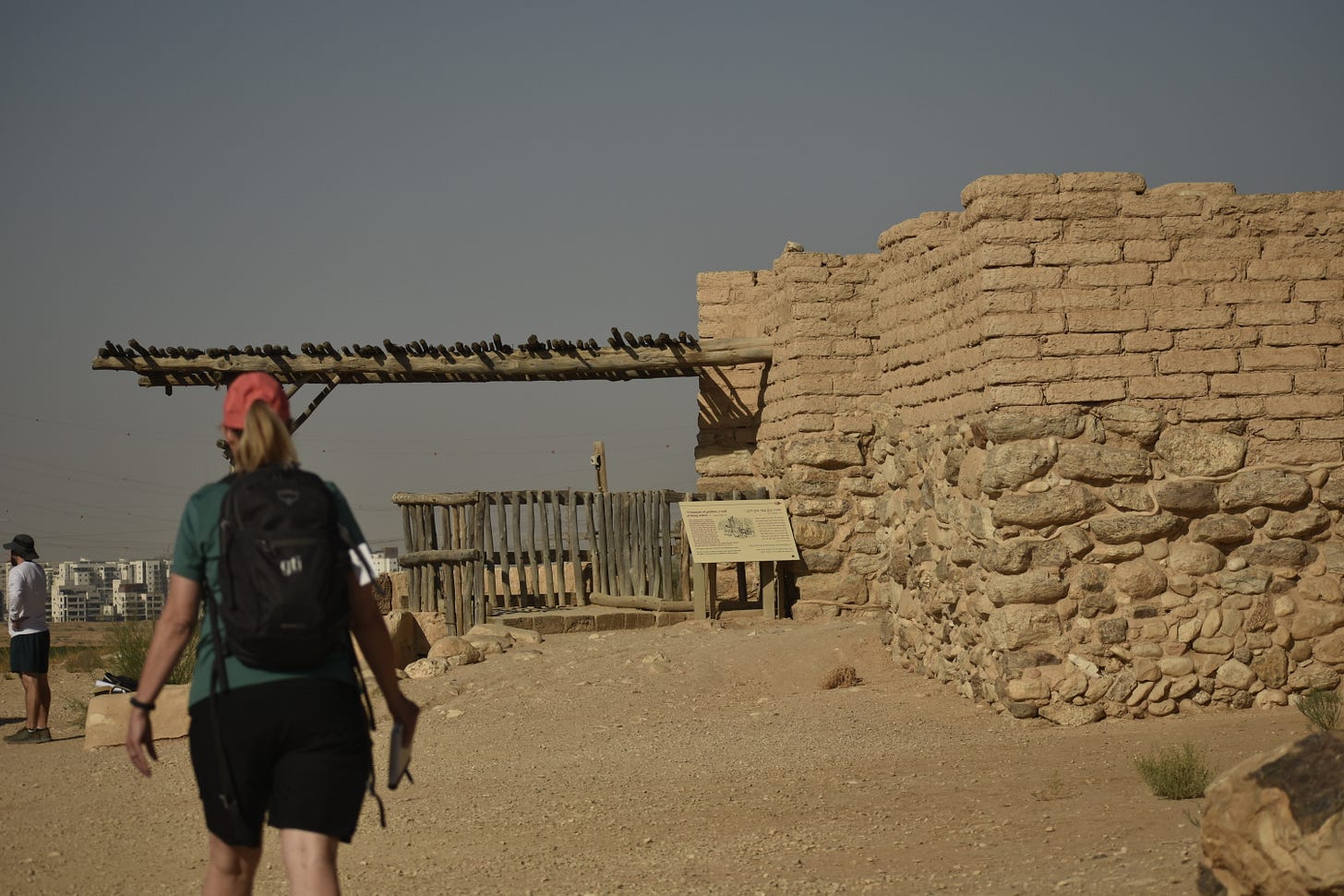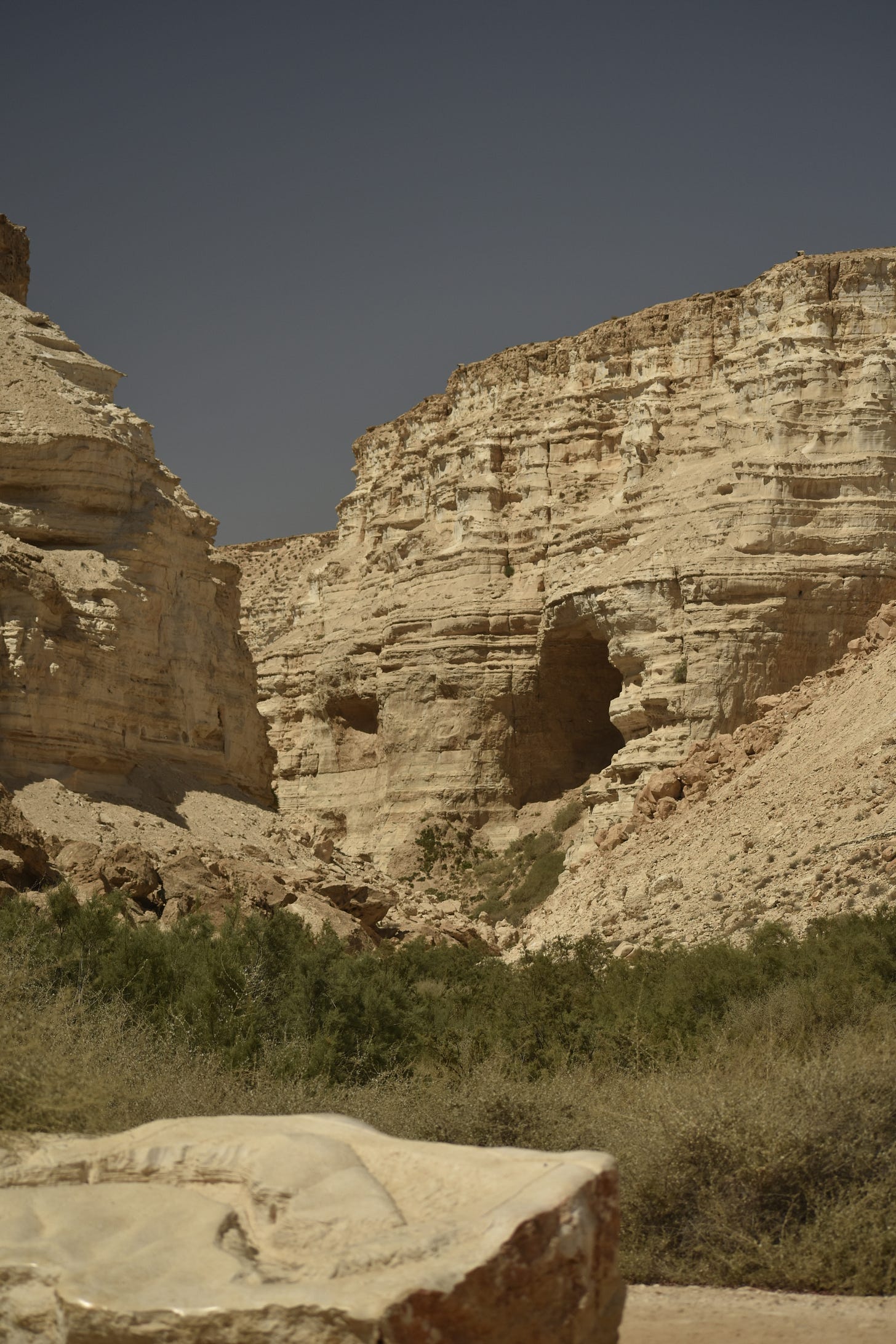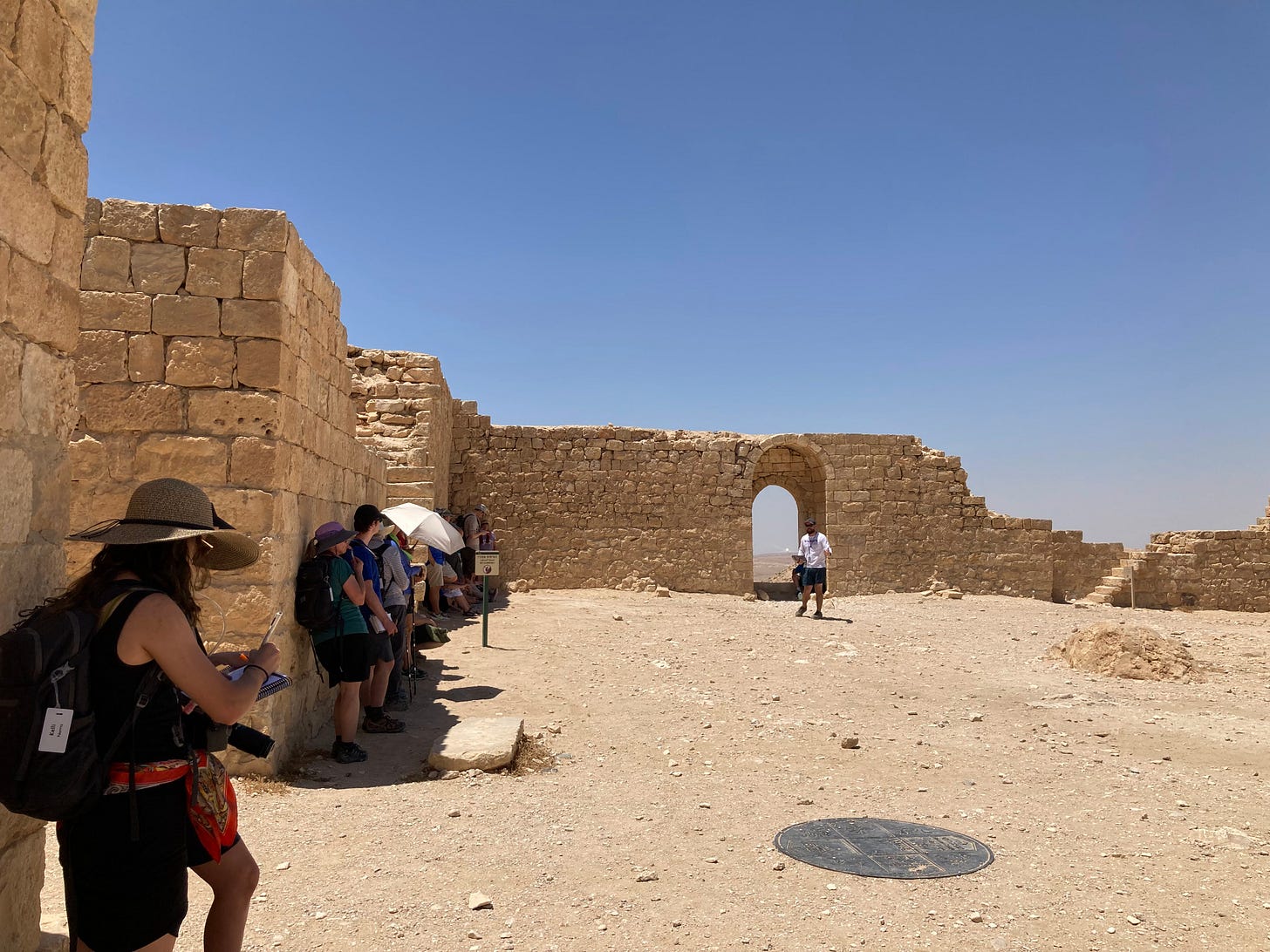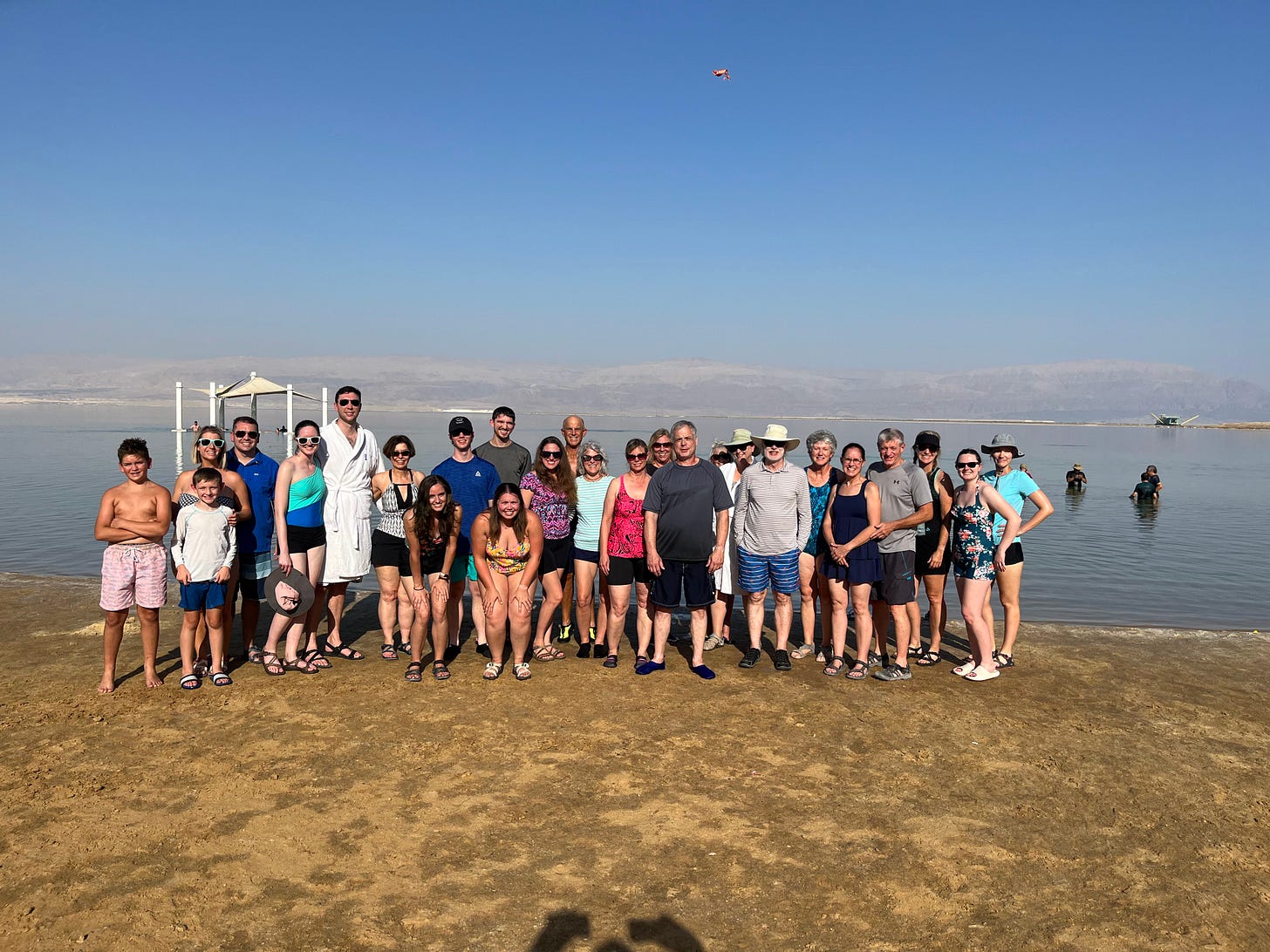Day 2: From Abraham's Well to the Dead Sea
A Day in the Desert
(The outer gate and well at Beersheba)
Beersheba, often referred to as the gateway to the Negev Desert, was our first stop today. We learned of tamarisk trees and ancient wells. We saw that despite being a foreigner and a stranger in the land, despite having no cultural power, Abraham planted a tamarisk tree trusting the promises of God for the next generation. Tamarisks grow very slowly, about an inch per year; Abraham would never have sat under the shade of that tree. He did it for the generations to come, an investment in them and a sign of trust that God would protect and provide. Given we were at an ancient well, we could not leave without mentioning what often happened at wells in the Bible—namely, engagements. Rebekah, Rachel, and Zipporah all made their matches at a well. As clear a theme as any in scripture—we pondered what it meant in John 4 when our Lord met a Samaratian woman at a well. We finished the site, discussing the historical significance of Beersheba—marveling at its level of development so early in Israel’s history and so far away from Shiloh, the first capital of Israel.
(Wilderness of Zin/ Ein Avdat)
Continuing on, we got a small taste of what Israel faced in wandering through the wilderness. We did a desert hike in the Wilderness of Zin in the spring of Avdat. We felt the desert's scorching heat on our skin, we saw blinding glare reflecting off of the rocks, smelled the desert brush, and felt its needling salty branches. We got a small taste of what the wilderness wanderings would have felt like day in and day out. Beyond this, we learned that one of our children's songs absolutely nailed the cultural reference about wadi and rain. The wise man does indeed build his house upon the rock because the flash floods will destroy what is on the sand. Finally, being in the wilderness of zin we discussed Moses's striking problem - from striking men to striking rocks, we saw the graciousness of God. How he provides and liberates even when his servants don’t quite lead as they ought.
(Roman Fortress at Tel Avdat)
We then came to Tel Avdat, a city full of tales of the Romans and Nabateans. We spoke of the Nabateans, their mastery of the desert, and their control of the spice routes in the ancient world. We saw their connection with the Herodian dynasty and how they played into the Jewish and Roman stories. We also introduced Rome. Their origins and splendor in Jesus’s day and their attempts to project power and stability into the outer reaches of their known world. Yet, we saw the faulure of that of that power, when Pilate washed his hands of Jesus's blood, a blight on the Pax Romana Rome failing to uphold the law of which they boast.
We finished our day in the Dead Sea. Floating in the hyper-saline waters, we laughed and perhaps cooked a little as it was quite hot in the sea here in July.
We finished our day in the Dead Sea. Floating in the hyper-saline waters, we laughed and perhaps cooked a little as it was quite hot in the sea here in July.
As we ready ourselves for the adventures that await us tomorrow, we ask for your prayers for strength, endurance, and the continued revelations of God. Our journey is just beginning, and we're excited to plunge deeper into the fascinating stories of God's people and their enduring faith.
Stay tuned; the journey continues.




